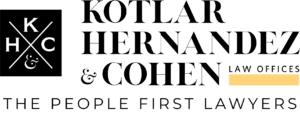Many corporate managers like to meet with their teams early in the day. These brief discussions allow everyone to talk about their assignments for the day and coordinate the work. In the world of construction and manufacturing, toolbox talks offer the same benefits. In fact, toolbox talks may have the power to lower work accident and death rates and reduce Workers’ Compensation claims.
How is a Toolbox Talk Structured?
A toolbox talk is basically time set aside at the beginning of a shift for workers to meet and focus on one topic. Often, the subject is related to some kind of workplace safety issue such as safe storage of chemicals, restaurant safety, or safer eyewear. The workers discuss the issue and agree to make it a priority for the day.
For instance, a toolbox talk might concentrate on cleaning and examining personal protective equipment (PPE). After the talk, workers would check their PPE carefully and pay attention to how they handled it throughout their shifts. They would then follow through by properly storing the PPE before leaving for the day. The supervisor would keep a record of the toolbox talk, who participated in the talk, and the outcome of the talk for data collection.
Frequency of Toolbox Talks Matters
Research shows that toolbox talk safety mini-sessions can have a long-term effect on helping to lower incidents of on-the-job accidents. However, the talks must happen at a regular basis to get the most out of the process. Even if toolbox talks occur just once a week on the same day, they may help prevent worker personal injury and fatalities.
Advantages of Toolbox Talks
When treated as a positive development rather than a chore that must be done, toolbox talks can promote many workplace benefits.
- Improved commitment: Workers who meet and talk about issues are more likely to come to a consensus about their expected commitments to workplace safety. Rather than thinking safety is the job of a few, they see safely as a collaborative effort.
- Stronger team: Any kind of communication between workers and supervisors strengthens the bond between colleagues. Teams get stronger, forging more trust in one another, when they come together regularly for abbreviated discussions.
- Increased productivity: A toolbox talk can be a great way to promote efficient output. Often, workers become newly energized when they have a specific goal to achieve, such as keeping the area more organized to limit slip and fall accidents.
- Lowered Workers’ Compensation claims: A long-term effect of constructive toolbox talks may include less worker personal injury, which translates into fewer Workers’ Compensation claims. This is good for all stakeholders involved, from the workers to the insurance carrier.
- New employee buy-in: Over time, new workers will be added to the company’s payroll. As part of their onboarding, the new hires should be introduced to toolbox talks. This will help them see these talks as a normal part of their work process, rather than something that has been added on.
How to Develop a Culture that Promotes Toolbox Talks
The good thing about toolbox talks is that they can start right away. Still, the toolbox talks will not be successful unless they follow a few best practices.
First, there needs to be a toolbox talk advocate at the executive or managerial level. Asking workers to set aside valuable time requires commitment from everyone, including supervisors. Team leaders who refuse to prioritize toolbox talks cannot expect their workers to conduct them alone.
Second, toolbox talks need to have a purpose and agenda. It should be simple and focused on just one safety objective. It is fine to repeat the same objective from time to time, especially after a near-accident or incident. However, coming to a toolbox talk without a plan will end up in frustration for everyone involved.
Third, no toolbox talk should last longer than about five minutes. Workers who want to speak further should set up one-on-one meetings with their supervisors.
Finally, workers need to understand what they are expected to do as a direct result of the toolbox talk. The day’s directive must be clear and easy to follow. Workers with questions should feel free to ask them upfront, rather than pretending they understand.
Starter Ideas for Toolbox Talks
Even the most imaginative leader can sometimes stumble when it comes to thinking of toolbox talk topics. Some good ways to generate ideas for upcoming toolbox talks include the following:
- Link toolbox talks with national observance days, weeks, and months. For example, October is Fire Safety Month, which could be a springboard for a toolbox talk on reducing the risk of worker burns. Similarly, June is National Safety Month, which opens the door to talk about solving the company’s most critical safety issues.
- Ask OSHA or another safety organization for flyers and brochures. The Occupational Safety and Health Administration (OSHA) has a variety of downloadable and printed information that can be disseminated and discussed at toolbox talks.
- Pick subjects based on Workers’ Compensation claims. Managers may want to get a general idea of which types of injuries are causing the most Workers’ Compensation claims. For instance, if a manufacturing plant’s workers tend to suffer from back injuries, a toolbox talk might center on proper lifting techniques.
- Ask workers for suggestions for upcoming toolbox talks. After they become acquainted with toolbox talks, workers might have recommendations for subjects they want to learn more about.
- Select a topic that pertains to Coronavirus (COVID-19) safety. Currently, workers have become more concerned about potentially spreading germs, bacteria, and viruses to one another. Therefore, toolbox talks regarding hygiene and sanitization are not only trending but also essential.
- Look online for toolbox talks specific to a certain industry. Toolbox talk subjects are available on many industry-specific pages. Some of these pages even link to collateral resources, such as printed materials, that can be used as part of the talk.
Final Thoughts on Toolbox Talks
It might seem unnecessary to remind workers repeatedly about the company’s safety expectations, requirements, and protocols. Yet all it takes is one accident or workplace fatality to highlight how important safety can be on any job site.
Mt. Holly Workers Compensation Lawyers at Kotlar, Hernandez & Cohen, LLC Advocate for Workers Hurt on the Job
If you suffered a workplace accident, reach out to the Mt. Holly workers compensation lawyers at Kotlar, Hernandez & Cohen, LLC. Our team can review these cases no matter how the accidents occurred or how the employee has been covered. We will work to ensure you can properly recover, receive the services for which you are entitled, and recover compensation if warranted. Call us at 856-751-7676 or contact us online for a free consultation. Our offices are in Mount Laurel, Cherry Hill, Trenton, and Vineland, New Jersey; and Trevose, Pennsylvania. We serve clients throughout New Jersey and Pennsylvania.


